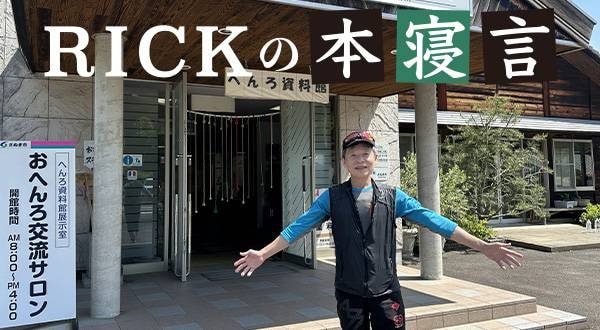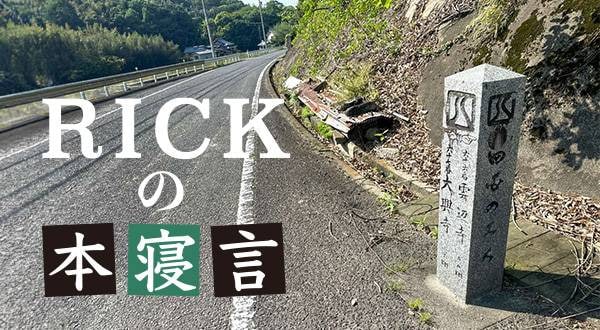Japanese society is starting to go off the rails. It is believed that Japan will inevitably cease to exist not in 500 years, but even sooner when the number of Japanese people drops to zero. What’s truly astonishing is the lack of a sense of crisis over the possibility that Japanese people might disappear altogether.There are many reasons behind this, but needless to say, the sharp decline in the birthrate is a major factor. Contributing to that decline are issues like young people losing the desire to marry and increasing economic insecurity, which have been the subject of various surveys.This is just my personal theory, but I believe one of the fundamental problems also involves people’s growing desire for leisure.
In Western countries today, there is a growing trend toward increasing days off, and I’m not just talking about two-day weekends, but moving toward three or even four days off per week. Upon seeing such news, many people in Japan likely wish the same could happen here. With more days off, physical strain is reduced. People would have more time to do what they want and enjoy life more. There is a widespread notion that the more days off, the better. But isn't there a major pitfall with this line of thinking?
Let’s not forget: the development of Japan's modern economy took place during the Showa era. After being defeated in war, Japan dedicated itself to rebuilding the nation under U.S. leadership. And, Japan worked harder than any other country in the world. Diligence and sincerity became a point of national pride, earning recognition worldwide. As a result of people’s relentless effort, the economy began to grow rapidly in the 1960s, and by the 1980s, the phrase "Japan as No.1" was being whispered across the globe. In other words, for a time, Japan became the richest nation in the world.
It goes without saying that tremendous hardship and labor were behind that success. During the era when the TV commercial slogan “Can you work 24 hours a day?!” became popular, the entire nation worked together with a spirit of urgency, expanding various businesses around the world under the mindset of "catch up and surpass." Whether that was ultimately a good thing is not the focus here. As a matter of historical fact, there was a time when everyone worked six days a week and they produced tangible results. The key point is that the nation with the fundamental purpose of working the hardest will eventually win. So then, Japan became an economic powerhouse. Of course, due to the collapse of the economic bubble, Japan has since fallen from that top position and is now facing a national fiscal crisis.
In this regard, China today is undergoing remarkable development. Its GDP has now surpassed that of Japan, and it is not only leading the IT revolution but also beginning to take the lead globally in AI and space exploration. Given that China has endured a tragic history, it would be a welcome development if they can contribute to world peace. Regardless of the outcome, what’s important is that Chinese people nowadays are working even more diligently than the Japanese. Much like Japan in the 1960s, China is now fully engaged at a national level in a catch-up-and-surpass effort against the United States and Japan. Moreover, it is a massive country with a population of 1.6 billion people. With China’s people working harder than the Japanese, there is no way Japan can win. As a result, in recent years, Japanese land has been increasingly bought up by Chinese investors and Chinatowns are beginning to form throughout city centers. It is only a matter of time before 10–20% of Japan’s population consists of immigrants from China.
Now, let’s get to the main point. It can be said definitively that the root of all evil lies in this misguided obsession with vacations. While Western countries leisurely take more days off to enjoy their free time, nations in the Global South, such as China and India, have been steadily gaining power. We must pay attention to the fact that it’s only a matter of time before the West loses their grip on global dominance. There isn’t a country in the world who can stand up to China. Even President Trump had no choice but to make concessions in the recent trade battles because the United States wants access to the rare earth elements that China possesses. A world dominated by a hard-working China and a rising India is inevitable. One of the reasons for this shift appears to be the delusional vacation-obsessed mindset prevalent in Western nations because they no longer value hard work.
The fundamental problem lies elsewhere: the looming era of food shortages. The age of abundance is coming to an end. Within a few years, a global food crisis will occur, and Japan will not be exempt from its effects. It would be a matter of life and death for Japan, especially if food imports are halted because they depend on imports for over 70% of their food supply. In fact, that reality is fast approaching. Ultimately, Japanese must return to their roots by dedicating themselves to agriculture and valuing fisheries to sustain themselves into the future. What does this mean? There is only one correct answer: daily hard work. The idea of a two-day weekend is out of the question, and any more days off would signify the beginning of famine.
Let’s consider whether, for humans, having just one day off per week should be the standard. Would farmers take two or three days off in a week? In Japan, where activities like rice planting, harvesting, crop rotation, and multiple cropping occur throughout the seasons, there’s no time to be leisurely resting. Especially on ranches, where cows, sheep, or horses are raised, you simply can’t leave them unattended. If daily tasks aren’t done, the animals will die. Therefore, having only one day off per week was the norm in traditional Japanese society and should be regarded as the fundamental basis of human life.
I feel there is a problem in how people have neglected essential work like agriculture and fishing, the very foundation of life, and instead have become infatuated with Western lifestyles, and they have grown accustomed to office work. It is only when humans work six days a week that animals can live healthily. Lately, I have been reflecting on the importance of working six days a week. This applies to office work as well. If people aren’t used to working six days regularly, how will they be able to sustain continuous hard labor in the fields when the time comes? I worry that many will give up easily, thinking it’s too troublesome to keep going.
There is one more crucial point that cannot be overlooked. The more leisure time people have, the more likely they are to engage in wrongdoing. It’s obvious that when people are busy working, they work hard, finish their day, enjoy dinner, and feel relieved, then fall into a comfortable sleep. This is a natural state. As a result, they are not plagued by unnecessary distracting thoughts or left wondering how to kill the time. Looking at recent malicious crimes, the vast majority do not happen while people are working. There is no doubt that those who are not working and have plenty of free time end up committing various offenses. If everyone were busy working in the fields, crimes simply would not occur, unless someone starts suddenly swinging an axe. When people have too much free time, they start imagining what they want to do, what they desire, and sometimes even entertain delusions, leading them to carry out things they should neither do nor think about. Therefore, while leisure may seem enjoyable on the surface, we must recognize that it can also be a pitfall leading to human degradation. Leisure time can become a breeding ground for crime.
The most important point is to understand that humans are fundamentally made to work six days a week. This is exactly as written in the Bible. God taught us that we must work six days and rest on the seventh day. You must not work seven days straight. The rule is to work six days and rest one day. This is the secret to maintaining both physical and mental health. This is the ironclad principle of human society.
Those who fantasize that two-day or three-day weekends are ideal will one day have to debate with God who created heaven and earth. Do they truly have the confidence to win such an argument? Before that, a time of disaster and hardship will soon arrive, and food will become scarce. When that happens, even if people panic and say, “From now on, we’ll start growing food in the fields!” it will already be too late. The consequences of failing to foresee the coming era of hunger and suffering will catch up with us. Even if we try to work the fields then, our bodies won’t keep up because we’ve spent so much time resting and playing, it seems unlikely that we will be able to adapt to such a crisis.
This is why Sound House started a farmhouse project, and even now continues to cultivate fields and produce rice. That rice is used in the company cafeteria. Of course, the scale is far too small to make much of a difference. However, this is just the first step. I can only hope that as many Japanese people as possible will become aware that the nation is heading toward extinction, so they will take action themselves and return to the way things ought to be as soon as possible. The answer begins with implementing only one day off per week.





























